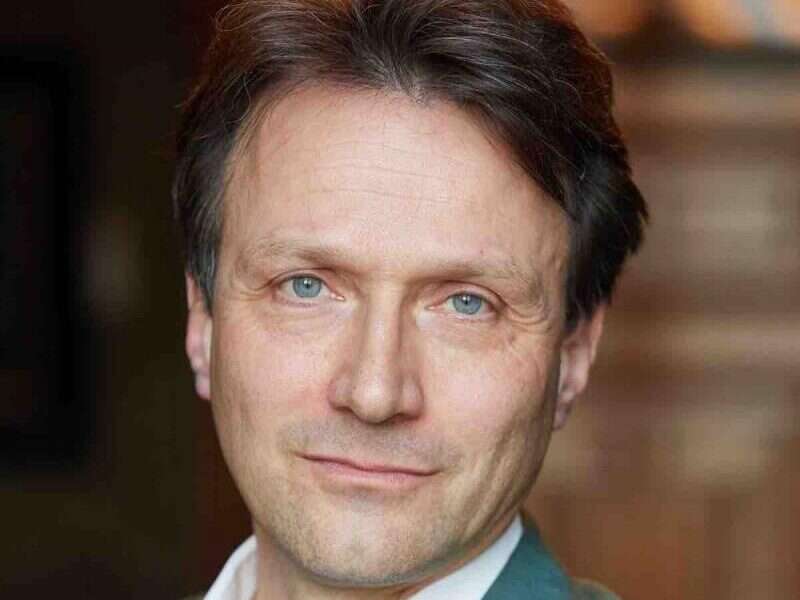
Editors are taking “short-term, opportunistic decisions” to deliberately downplay the threat of climate change in an effort to increase readership, a leading researcher and former Conde Nast executive has claimed.
Oxford Climate Journalism Network co-founder Wolfgang Blau also suggested the long-term implications of climate change pose a bigger challenge to journalism than the advent of the internet.
In July several UK newspapers were criticised for focusing on imagery of swimmers, beaches and ice creams as temperatures hit 40 degrees. However, it is worth noting that UK national newspapers have become supportive of the need for action to tackle man-made climate change over the last decade.
But Blau, who was chief operating officer at magazine giant Conde Nast between 2015 and 2020, told Press Gazette: “I have often interacted with people at news organisations where they know perfectly well about the size of the risk we’re facing from climate change and who, at the same time, make very short term, opportunistic decisions in their framing of the issue based on what they thought would sell the most copies.
“So I think it would be a bit naive to draw conclusions from someone effectively spreading that misrepresentation to assume that is because of a lack of knowledge.”
Blau, also a former director of digital strategy for The Guardian, added: “There are these publications that use the frame to always focus on what something means for the average man or woman on the street.
“And you have seen a lot of publications that have that as their frame, which is not a bad frame, misrepresent what certain measures mean and understate how climate change is the biggest social question ever, one that will hit the poorest people the hardest.”
Blau co-founded the Oxford Climate Journalism Network at the Reuters Institute for the Study of Journalism in October last year in an effort to help train journalists and editors to change the way their outlets cover the climate crisis. The first cohort includes 100 writers and editors from 61 countries.
One of the network’s main aims is to encourage the expansion of climate coverage beyond a few specialist reporters and into the day-to-day reporting of every journalist at a news outlet.
Blau said the only analogy for that shift and the impact on journalism posed by climate change was the rise of the internet.
“It typically started with a legacy broadcast or print publisher realising at some point this internet thing is not going away and then they hired one expert hoping that that one digital guru could change everything and install digital culture,” he said.
“Then, at some point, they realised that was not enough and they needed a team. But that team often was set up outside of the existing publishing operation, similar to how many climate journalists often are still under the suspicion of not really being journalists, but activists.”
He added: “And then you went through these different stages of bringing them in and we went through this phase of integrated newsrooms and acknowledging that it’s all just journalism, after which we realised as an industry, no, actually, we do need experts. But the type of expert is now very different. It’s much more specialised, like Tiktok or data visualisation specialists.”
He went on: “And most newsrooms have not understood yet that just like with digitisation, where culture desks, travel desks, science desks, all of them had to increase their digital literacy as quickly as possible, that we’re facing the same with basic climate literacy.”
Blau said that because journalistic reporting is “ultimately short term”, it struggles to know how to report on policy discussions and their long-term consequences.
“Many of the policy measures are being discussed and have goals in 2030 or 2050. They are so far ahead in the future like nothing else journalism has ever had to deal with,” he said.
Blau also criticised news programmes that offer a false sense of balance by having one guest backing climate action and another downplaying or denying climate change.
We hit 40.2 C today – the highest temperature recorded in England.
But climate denial, deflection, and minimisation is still rife in the British media. pic.twitter.com/Vl4ai0Mowk
— Ash Sarkar (@AyoCaesar) July 19, 2022
“You see it in many areas, not just climate change, you also saw TV shows where epidemiologists, virologists were asked to debate with an outright Covid denier,” Blau said. “But the mistake happens when giving the studied virologists, epidemiologists the same stature as the Covid denier and flattening or equalising them.”
He added: “I see two main causes for that approach. One is just sheer ignorance, lack of basic knowledge, or a combination between laziness or cynicism.
“If you’re an overworked producer of a talk show, you never have time to understand any topic really in depth.
“If you have an epidemiologist having to run for his or her life on a show defending their reputation… you don’t have to prepare as much for that as if you would have to with a show where you host two epidemiologists wanting to discuss their competing strategies.”
Picture: Reuters Institute for The Study of Journalism
Email pged@pressgazette.co.uk to point out mistakes, provide story tips or send in a letter for publication on our "Letters Page" blog
